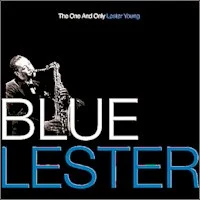Styles: Avant Garde
Year: 2013
File: MP3@320K/s
Time: 38:49
Size: 89,7 MB
Art: Front
(3:55) 1. Who Killed Cock Robin
(4:36) 2. Wigglin'
(3:58) 3. Music Forever
(4:13) 4. Time to Smile
(3:04) 5. Theme for Sister Salvation
(3:00) 6. Jim Dunn's Dilemma
(3:04) 7. O.D. (Overdose)
(5:42) 8. Murmur
(2:42) 9. Conception
(4:31) 10. Ballade for Jackie
Year: 2013
File: MP3@320K/s
Time: 38:49
Size: 89,7 MB
Art: Front
(3:55) 1. Who Killed Cock Robin
(4:36) 2. Wigglin'
(3:58) 3. Music Forever
(4:13) 4. Time to Smile
(3:04) 5. Theme for Sister Salvation
(3:00) 6. Jim Dunn's Dilemma
(3:04) 7. O.D. (Overdose)
(5:42) 8. Murmur
(2:42) 9. Conception
(4:31) 10. Ballade for Jackie
Although born in Italy, Aldo Romano moved to France with his family at a young age. He was already playing guitar and drums professionally in Paris in the '50s when he heard Donald Byrd's group with drummer Arthur Taylor. Since then, he has dedicated himself to the drums and contemporary jazz. In Paris jazz clubs like le Chat Qui Pêche and the Caméléon, Romano has accompanied visiting Americans like Jackie McLean, Bud Powell, Lucky Thompson, J.J. Johnson, and Woody Shaw while also exploring free music with Don Cherry and Gato Barbieri, Frank Wright and Bobby Few, Michel Portal, François Tusques, Jean-Louis Chautemps, and Steve Lacy. Romano's boundless curiosity for any living music brought him in contact with electric jazz in the '70s, playing at the Riverbop with longtime associate/bassist Jean-François Jenny-Clark, in addition to François Jeanneau, Henri Texier, Charlie Mariano, and Philip Catherine. In 1978, he released his first album as a leader with Claude Barthélémy (Il Piacere, OWL), followed by 1980's Night Diary with Didier Lockwood and Jasper Van't Hof, and 1983's Alma Latina with Philip Catherine. In 1980, Romano brought pianist Michel Petrucciani to the world's attention, introducing him to the producer of Owl Records.
His Italian roots were lovingly remembered with the foundation of his Italian Quartet with Paolo Fresu, Franco D'Andrea, and Furio Di Castri. The quartet recorded To Be Ornette to Be and Water Dreams (Owl) and Non Dimenticar, a collection of Italian songs (Verve). Palatino named for the Rome-Paris night train also includes Fresu, with Glen Ferris on trombone. Intervista (Verve, 2001) with bassist Palle Danielsson, saxophonist Stefano di Battista, and Brazilian guitarist Nelson Veras is a magnificently played overview of his musical career, with Ornette Coleman-ish tunes, Latin-American compositions, and operatic arias; a bonus CD contains a charming interview. https://itunes.apple.com/nz/artist/aldo-romano/id3572852#fullText
Personnel: Aldo Romano – drums; Baptiste Herbin - alto sax; Alessandro Lanzoni- piano; Michel Benita - bass
Personnel: Aldo Romano – drums; Baptiste Herbin - alto sax; Alessandro Lanzoni- piano; Michel Benita - bass




















